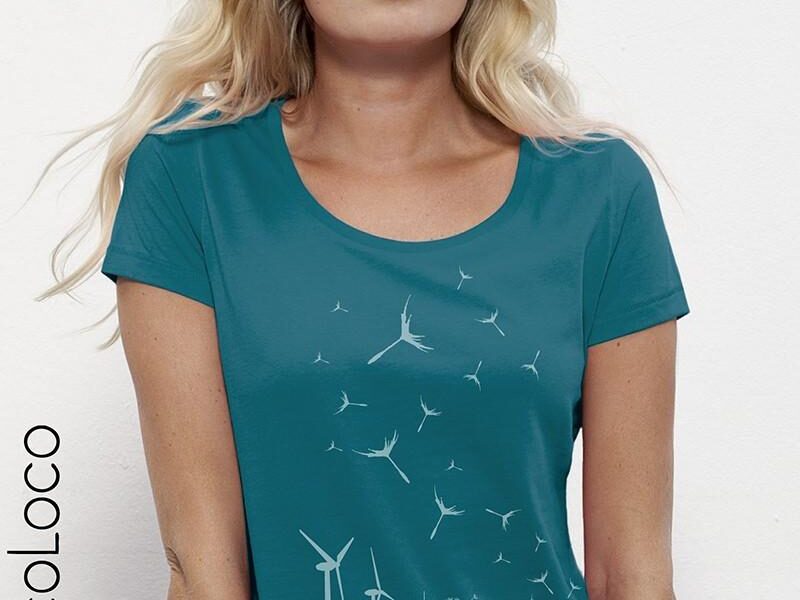In a world increasingly attuned to the rhythms of nature, the fashion industry is undergoing a transformation that honors both style and sustainability. Enter organic clothing for women—a movement that transcends mere trends and takes root in mindfulness and ethical production. As discerning consumers seek alternatives to conventional textiles, organic clothing emerges not only as a fashionable choice but also as a statement of values. From the soft touch of cotton grown without harmful pesticides to the vibrant hues derived from natural dyes, this approach to fashion invites women to explore a wardrobe that reflects their commitment to the planet. In this article, we’ll delve into the myriad benefits of organic clothing, the innovative brands leading the charge, and how embracing these sustainable practices can enhance both personal style and ecological awareness. Join us on this journey as we unravel the threads of organic fashion and discover how clothing can truly nurture both the wearer and the Earth.
Table of Contents
- Exploring the Benefits of Organic Clothing for Women
- Sustainable Materials: The Heart of Eco-Friendly Fashion
- Style Meets Comfort: Top Organic Clothing Brands for Every Occasion
- Caring for Your Wardrobe: Maintenance Tips for Organic Fabrics
- Q&A
- To Wrap It Up
Exploring the Benefits of Organic Clothing for Women
Choosing organic clothing goes beyond simply opting for a trendy style; it embodies a conscious lifestyle choice that promotes sustainability. One of the most significant benefits for women is the absence of harmful chemicals commonly found in conventional fabrics. By choosing garments made from organic materials, you’re not only protecting your skin from irritants but also supporting farming practices that are gentler on the environment. Women can embrace a wide variety of stylish designs without compromise, knowing that their choices contribute to a healthier planet.
Moreover, organic clothing often boasts superior quality and durability, ensuring longevity that synthetic fibers can’t match. When purchasing organic garments, consider the following benefits:
- Breathability: Natural fibers allow better air circulation, making them more comfortable to wear in various climates.
- Biodegradability: Organic fabrics decompose more easily, reducing landfill waste.
- Support for Ethical Practices: Many organic brands prioritize fair labor practices, contributing to better working conditions.
These factors combined make organic clothing a smarter choice for modern women who value both style and sustainability.
Sustainable Materials: The Heart of Eco-Friendly Fashion
When it comes to eco-friendly fashion, the choice of materials plays a crucial role in minimizing environmental impact. Organic clothing for women is often made from materials such as cotton, linen, and hemp, which are cultivated without harmful pesticides or synthetic fertilizers. These materials not only ensure sustainable harvesting practices, but also contribute to the versatility and comfort of everyday wear. Natural fibers tend to be more breathable and softer on the skin, making them ideal for all seasons. As consumers become more conscious of their purchasing choices, brands are increasingly turning to alternative fibers, such as Tencel and bamboo, which boast lower water consumption during production and a significant reduction in carbon footprint.
Adopting sustainable materials goes beyond the raw fibers used; it encompasses the entire production process. Here’s how some key materials create a more sustainable fashion landscape:
| Material | Benefits | Impact |
|---|---|---|
| Organic Cotton | Better for skin, pesticide-free | Reduces soil and water pollution |
| Linen | Durable, biodegradable | Low water usage in cultivation |
| Hemp | Strong, UV resistant | Highly efficient in CO2 absorption |
| Tencel | Smooth feel, moisture-wicking | Closed-loop production process |
By focusing on these innovative organic options, brands encourage consumers to invest in quality pieces that are not only stylish but also kind to the planet. More than just a trend, choosing sustainable materials reflects a lifestyle that prioritizes ecological integrity and ethical production practices, encouraging women to wear their values just as much as their clothes.
Style Meets Comfort: Top Organic Clothing Brands for Every Occasion
In a world where fashion often comes at the expense of comfort and sustainability, a wave of organic clothing brands has emerged, offering stylish options that cater to eco-conscious consumers. These brands prioritize natural fibers and sustainable practices, ensuring that every piece you wear is not only fashionable but also kind to the planet. From casual weekends to sophisticated workwear, these selections emphasize versatility and style without sacrificing comfort. Here’s a list of standout brands you should consider:
- Reformation: Renowned for its chic designs and eco-friendly fabrics, perfect for a night out or a casual brunch.
- Amour Vert: Specializes in timeless silhouettes made from sustainable materials, ideal for office wear.
- Pact: Focuses on organic cotton basics that are super soft, perfect for lounging or running errands.
- Thought: Combines natural fabrics with stylish cuts, great for everyday wear that still feels polished.
Each brand brings its unique approach to organic clothing, ensuring you don’t have to compromise on style or comfort. For instance, many brands now offer size-inclusive options catering to a diverse range of body types, promoting body positivity and acceptance. Check out the table below for a quick comparison of what you can expect from these leading organic clothing brands:
| Brand | Key Features | Best For |
|---|---|---|
| Reformation | Trendy styles, eco-focused | Evening wear |
| Amour Vert | Elegant designs, sustainable sourcing | Workwear |
| Pact | Soft basics, fair trade | Casual wear |
| Thought | Stylish cuts, natural fibers | Day-to-day outfits |
Caring for Your Wardrobe: Maintenance Tips for Organic Fabrics
Caring for organic fabrics goes beyond merely washing and wearing. To prolong the lifespan of your favorite pieces, consider implementing the following maintenance tips:
- Wash Wisely: Use cold water and gentle detergents, preferably those designed for delicate fabrics. This helps maintain the color and texture of organic materials.
- Avoid Overwashing: Only wash your garments when necessary. Spot cleaning can be effective for minor stains, reducing the wear and tear from frequent laundering.
- Air Dry: Whenever possible, hang your organic clothing to dry. The heat from dryers can cause shrinkage and fade colors over time.
- Store with Care: Choose breathable storage options like cotton bags or wooden hangers to prevent moisture buildup and maintain shape.
Additionally, keeping an eye on the specific needs of each fabric type can make a significant difference. For instance, different organic fibers like cotton, linen, and hemp may require varied handling:
| Fabric Type | Care Tips |
|---|---|
| Cotton | Machine wash on a gentle cycle; tumble dry low. |
| Linen | Hand wash or machine wash on delicate; line dry to prevent wrinkles. |
| Hemp | Wash in cold water with mild detergent; avoid bleach. |
Q&A
Q&A on Organic Clothing for Women
Q1: What exactly is organic clothing?
A1: Organic clothing refers to garments made from natural fibers that are grown without the use of synthetic pesticides, fertilizers, or genetically modified organisms (GMOs). This environmentally friendly approach to fashion helps in reducing pollution and promoting sustainable agriculture.
Q2: Why should women consider choosing organic clothing?
A2: Choosing organic clothing can have multiple benefits for women. Primarily, it supports a healthier planet by minimizing chemical exposure in farming, which can also lead to improved health for those who wear these clothes. Additionally, organic fibers offer gentler options for sensitive skin, reducing the risk of irritation caused by harsh chemicals found in conventional fabrics.
Q3: How does organic clothing differ in quality compared to conventional fabrics?
A3: Many organic fabrics are renowned for their durability and softness. Since they’re produced without harmful chemicals, they often maintain vibrancy and texture for longer periods. Additionally, organic cotton, bamboo, and linen are not only eco-friendly but also breathable and comfortable, making them ideal for everyday wear.
Q4: Is organic clothing more expensive than regular clothing?
A4: While organic clothing can carry a higher price tag than conventional garments, this is often due to the sustainable practices involved in their production. Investing in quality over quantity means you may end up with longer-lasting pieces, potentially reducing long-term costs. Plus, the cost reflects ethical labor practices and environmental stewardship.
Q5: Can I find a variety of styles in organic clothing?
A5: Absolutely! The landscape of organic clothing has expanded significantly in recent years. From casual wear to professional attire, and even activewear, there are myriad styles available. Many brands prioritize design as much as sustainability, ensuring that women can express their personal style without compromising their values.
Q6: How do I know if a clothing item is genuinely organic?
A6: Look for certified organic labels, such as the Global Organic Textile Standard (GOTS) or OEKO-TEX certifications. These labels ensure that the items meet strict environmental and social criteria throughout their production process. Always check the brand’s website for transparency about their sourcing and manufacturing methods.
Q7: Are there any care tips for maintaining organic clothing?
A7: To keep your organic garments in great shape, it’s best to wash them in cold water and hang them to dry whenever possible. Avoiding harsh detergents and fabric softeners can also help maintain the integrity of the natural fibers. Additionally, since organic clothing is often more breathable, you may find that you can wash them less frequently, thus extending their life.
Q8: Where can I find organic clothing for women?
A8: Organic clothing is increasingly available in both specialty eco-friendly boutiques and mainstream retailers as sustainability becomes a priority for many brands. Online platforms dedicated to sustainable fashion offer a wide selection, allowing you to shop from the comfort of home. Be sure to explore local markets or thrift shops that might carry unique organic options as well!
Q9: Can embracing organic clothing impact the fashion industry as a whole?
A9: Yes, consumer demand for organic and sustainable clothing can significantly influence the fashion industry. As more women choose eco-friendly options, brands may shift towards more sustainable practices, resulting in a ripple effect that encourages responsible production methods industry-wide. By opting for organic clothing, women can help pave the way for a more sustainable future in fashion.
Embrace the change—one organic choice at a time!
To Wrap It Up
As we wrap up our exploration of organic clothing for women, it’s clear that the choices we make extend beyond fashion—they resonate with our values, health, and the environment. By opting for organic fabrics, we embrace a lifestyle that prioritizes sustainability and ethical practices, allowing us to express our individuality while nurturing the planet. As you delve into the world of organic fashion, remember that each piece tells a story of care and conscious living. Whether it’s a cozy organic cotton tee or a flowing hemp dress, every item is a step toward a greener future. So, as you curate your wardrobe, let your choices reflect not just your style, but also your commitment to a better world—one thread at a time. Happy shopping!


